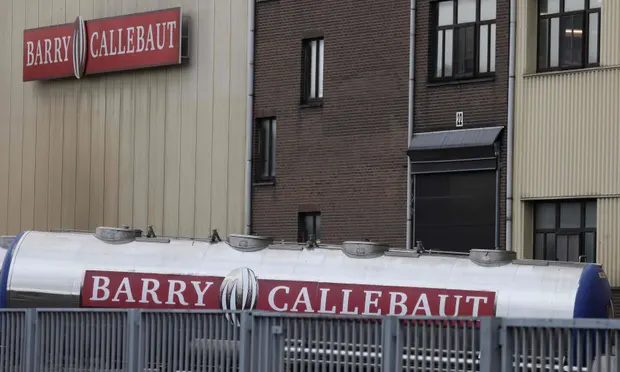
Belgium’s Food Safety Agency (FAVV) on Wednesday morning confirmed that a Hungarian delivery of soy lecithin, a raw material used to bind fat and water, was the cause of the recent salmonella outbreak at the chocolate factory in Wieze, Bellgium. This was the result of an internal investigation by the company, which was verified by an external test.
The Brussels Times reported earlier on Wednesday that a Hungarian delivery was the source of the contamination at the plant, the biggest chocolate factory in the world, and a spokesman from Belgium’s Food Safety Agency told the paper that the Hungarian authorities had been informed of the matter. Hungarian food safety authority Nebih confirmed on Wednesday evening that delivery of soy lecithin from a Hungarian company was the source of recent salmonella contamination at a Barry Callebaut plant in Wieze, Belgium.
The National Food Chain Safety Office (Nébih) in Hungary has inspected the lecithin supplier, examining the processing methods, documentation, and taking official samples.
Impacted customers can remove and destroy liquid chocolate stock impacted by the incident from their tanks and lines under certain conditions. They will then be able to clean, disinfect, and to restart production. This does not yet apply to solid chocolate.
Barry Callebaut is carrying out a root cause analysis as well as cleaning and disinfecting production lines before resuming operations. A date has not yet been set for restart.
The company’s own tests also confirmed the batch of lecithin was contaminated with Salmonella, so it stopped production of the additive, and blocked batches at the plant. Based on initial follow-up investigations, affected items were not shipped to other companies.
The FAVV was able to warn Hungary via the Rapid Alert System for Food and Feed (RASFF), a European platform through which member states keep each other informed should there be problems in the food chain which could have an impact on other EU countries.
Lecithin is used in all chocolate production lines in Wieze, so the company decided to stop the lines and to block all chocolate products manufactured from June 25 to 29, except for cocoa production which is not linked to the lecithin circuit.
On July 1, Barry Callebaut confirmed that, based on its internal investigation, no affected products had entered the retail food chain. No implicated chocolate has been exported by the company outside Europe.